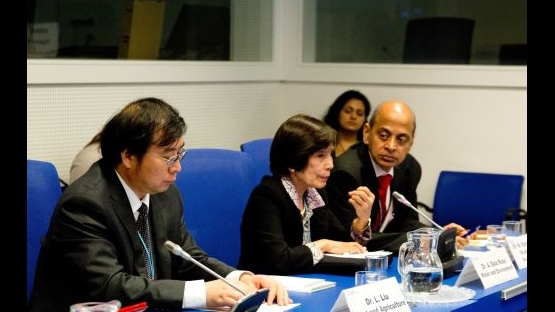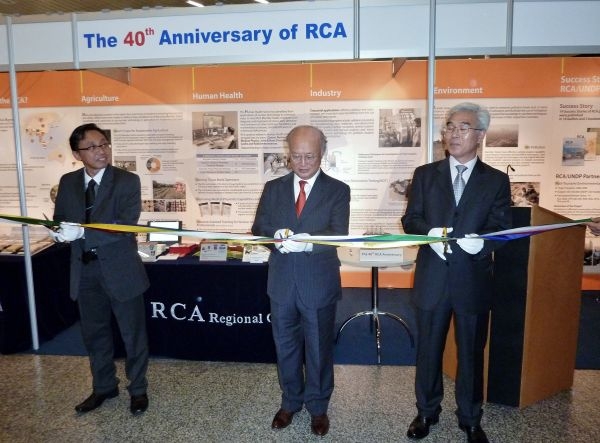The Regional Co-operative Agreement for Research, Development and Training Related to Nuclear Science and Technology for Asia and the Pacific (RCA) celebrates its 40th anniversary this year. As part of the activities to mark the occasion, a panel discussion was held as a side event to the IAEA’s 56th General Conference on 18 September 2012.
The panel was chaired by Dr. Anhar R. Antariksawan, national RCA representative of Indonesia and former RCA Chair, and speakers were invited from Australia, China, India, the Philippines and Sri Lanka, as well as from the IAEA Secretariat. Each panelist highlighted successful collaboration in a specific area, covering human health, food and agriculture, water and the environment, and industrial applications.
Dr. Antariksawan welcomed the participants, noting the significant role that the RCA has played in fostering the contribution of nuclear science and technology to the development of the Asia and the Pacific region. The keynote speaker, Dr Prinath Dias, the former RCA focal point in the IAEA Secretariat, provided the audience with a snapshot of the establishment and growth of the RCA, as well as with some reflections on its possible future.
The following speaker, Dr Ali Boussaha, Director of the Division for Asia and the Pacific, acknowledged the achievements of the RCA and explained how other regional cooperative agreements had learned much from its experiences. Ms. Heather Patterson, from the Australian Nuclear Science and Technology Organization, then spoke on the topic of human health. She highlighted the RCA’s input to capacity development in the region, describing the variety of training opportunities that it has supported, and noting the vast number of specialists trained in this sector alone.
Professor Luxiang Liu of the Chinese Academy of Agricultural Sciences described RCA projects in the field of food and agriculture. Noting the likely increase in population between now and 2050, Professor Liu emphasized the important role that nuclear science can play in increasing food security. Dr Alamunda Dela Rosa of the Philippine Nuclear Research Institute introduced the audience to the wide range of projects undertaken under the RCA in the area of water and agriculture. She highlighted how nuclear technology can be used to trace and address environmental pollution.
Dr Natesan Ramamoorthy spoke persuasively of the importance of nuclear science and technology in industry, providing examples from a wide range of industrial sectors. All speakers agreed that establishing further partnerships between RCA Member States and creating synergies between the RCA and the IAEA would be central to the future development of the RCA.
After the panel discussion, the panelists and audience moved to the Rotunda of the Vienna International Centre, where the IAEA Director General, Yukiya Amano, congratulated RCA States Parties on their successful cooperation, and officially opened the RCA anniversary exhibition with a ribbon-cutting ceremony.





